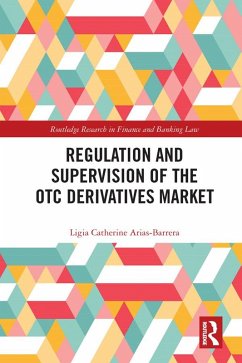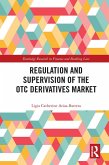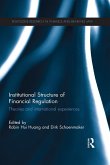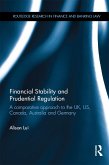This book, for the first time, analyses the regulatory response of the United Kingdom and the United States, the two largest centres of OTC derivatives transactions, and highlights their shortcomings. The book uses a normative risk-based approach to regulation as a methodological lens to analyse the UK regime of CCPs in the OTC derivatives market. It specifically focuses on prudential supervision and conduct of business rules governing OTC derivatives transactions and the move towards enhancing the use of central clearing. The resulting analysis, from a normative risk based approach, suggests that the UK regime for CCPs does not fulfil what would be expected if a coherent risk based approach was taken.
Our comments on the Dodd-Frank Act highlight that the incoherent adoption of risk-based approach to regulation affects the effectiveness of the US regime for CCPs. Such a regime does not follow the pace of events of 'innovation risk'; in particular, the foreseeable changes FinTech will bring to the OTCDM and central clearing services. The second inadequacy of the US regime concerns the dual regulatory structure of the CFTC and the SEC, and the inadequate adoption of different and not well-coordinated regulatory strategies. We also analyse the cross-border implications of the US regime for non-US CCPs that provide clearing services to US market participants. Finally, we study the negative effects of the absence of a clearly defined resolution regime for CCPs.
Dieser Download kann aus rechtlichen Gründen nur mit Rechnungsadresse in A, B, BG, CY, CZ, D, DK, EW, E, FIN, F, GR, HR, H, IRL, I, LT, L, LR, M, NL, PL, P, R, S, SLO, SK ausgeliefert werden.









